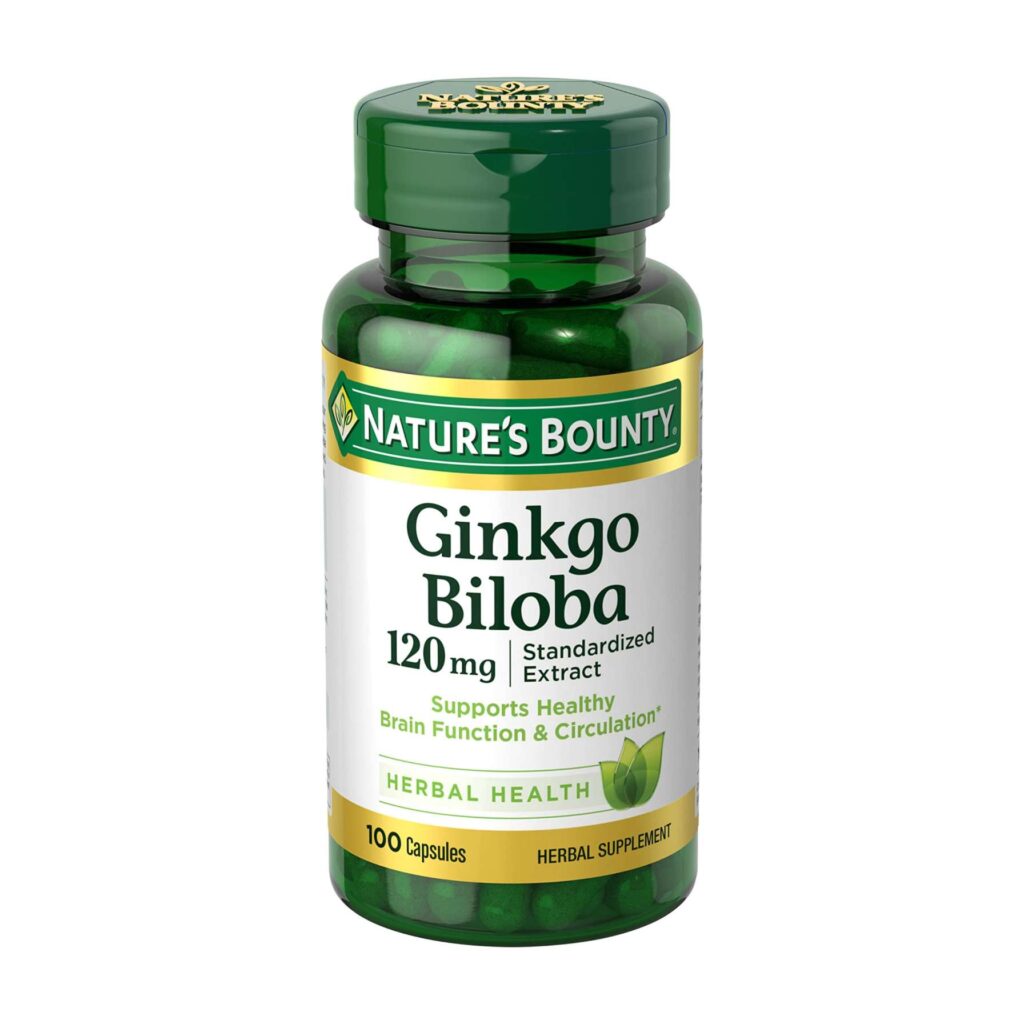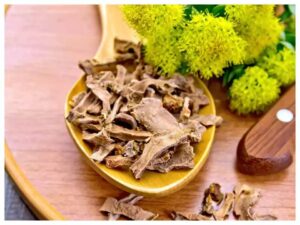The Discovery of Ginkgo biloba
Introduction
Ginkgo biloba is a fascinating tree species that has captured the attention of botanists and naturalists alike for centuries. Its unique fan-shaped leaves and ancient lineage have made it a popular subject of study, and its medicinal properties have been recognized and utilized for thousands of years. In this article, we will explore the discovery of Ginkgo biloba and the history behind its widespread use in traditional medicine.
Early History
The Ginkgo biloba tree has a long and storied history, dating back millions of years to the time of the dinosaurs. Fossil records indicate that Ginkgo biloba was once a dominant species throughout much of the world, but today it is found only in a few isolated pockets in China and Japan. The tree’s longevity and resilience have made it a symbol of hope and perseverance throughout history, and it has been revered in many cultures as a symbol of longevity and good luck.
Traditional Medicine
The use of Ginkgo biloba in traditional medicine can be traced back to ancient China, where it was used to treat a variety of ailments, including asthma, bronchitis, and urinary tract infections. In traditional Chinese medicine, Ginkgo biloba is believed to improve circulation and increase mental alertness, and it is still widely used today for these purposes.
Rediscovery in the West
Despite its long history in traditional medicine, Ginkgo biloba was largely unknown in the West until the late 17th century when it was rediscovered by European botanists. The first European to encounter the tree was Engelbert Kaempfer, a German physician and naturalist who traveled to Japan in the early 18th century. Kaempfer was fascinated by the tree’s unique appearance and collected specimens to bring back to Europe.
Botanical Classification
It was not until the late 18th century that Ginkgo biloba was formally classified by Western botanists. The French botanist Jean Baptiste Lamarck was the first to give the tree its scientific name, Ginkgo biloba, in 1783. Lamarck recognized the tree’s unique characteristics and placed it in its own family, the Ginkgoaceae.
Medicinal Properties
In the early 20th century, scientists began to study the medicinal properties of Ginkgo biloba in earnest. One of the key compounds in the tree, a flavonoid called quercetin, was found to have powerful antioxidant properties, which led to increased interest in the use of Ginkgo biloba as a natural remedy for a variety of health issues.
Modern Uses
Today, Ginkgo biloba is widely used as a dietary supplement to support cognitive function and memory. It is believed to improve blood flow to the brain, which can enhance mental alertness and concentration. Ginkgo biloba is also used to treat a variety of health conditions, including tinnitus, vertigo, and peripheral arterial disease.
Conclusion
The discovery of Ginkgo biloba is a fascinating story that spans millions of years and multiple cultures. From its ancient origins to its modern-day use as a natural remedy, the Ginkgo biloba tree has captured the imaginations of scientists, naturalists, and healers for centuries. Its unique properties and resilience continue to make it a subject of ongoing research and exploration, and it is likely that we will continue to uncover new and exciting uses for this remarkable plant in the years to come.

The Health Benefits of Ginkgo biloba
Cognitive Function
One of the most well-known benefits of Ginkgo biloba is its ability to support cognitive function. Studies have shown that Ginkgo biloba may help to improve memory and concentration, particularly in older adults. This is because the active compounds in Ginkgo biloba can help to increase blood flow to the brain, which can improve cognitive function.
Anxiety and Depression
Ginkgo biloba may also be helpful for those who suffer from anxiety or depression. Some studies have suggested that Ginkgo biloba can help to reduce symptoms of anxiety and depression, although more research is needed in this area. It is thought that the active compounds in Ginkgo biloba may help to regulate levels of neurotransmitters in the brain that are responsible for mood and anxiety.
Vision and Eye Health
Ginkgo biloba may also have benefits for vision and eye health. Studies have shown that Ginkgo biloba can help to improve blood flow to the eyes, which can help to reduce the risk of age-related macular degeneration and other eye conditions. Additionally, some studies have suggested that Ginkgo biloba can help to improve vision in people with glaucoma.
Cardiovascular Health
Ginkgo biloba has also been shown to have benefits for cardiovascular health. Studies have shown that Ginkgo biloba can help to improve circulation and reduce inflammation in the body, which can help to reduce the risk of cardiovascular disease. Additionally, some studies have suggested that Ginkgo biloba may be helpful for reducing high blood pressure.
Sexual Function
Ginkgo biloba may also have benefits for sexual function. Some studies have suggested that Ginkgo biloba can help to improve sexual desire and function in both men and women. It is thought that the active compounds in Ginkgo biloba can help to increase blood flow to the genitals, which can improve sexual function.
Skin Health
Ginkgo biloba may also be beneficial for skin health. Studies have shown that Ginkgo biloba can help to reduce inflammation in the skin, which can help to improve the appearance of fine lines and wrinkles. Additionally, some studies have suggested that Ginkgo biloba may be helpful for reducing the appearance of age spots and other skin discolorations.
Asthma and Allergies
Finally, Ginkgo biloba may also be helpful for those who suffer from asthma or allergies. Studies have shown that Ginkgo biloba can help to reduce inflammation in the airways, which can improve symptoms of asthma and allergies. Additionally, some studies have suggested that Ginkgo biloba can help to reduce the severity and frequency of asthma attacks.

The Nutritional Components and Core Ingredients of Ginkgo biloba
Introduction
Ginkgo biloba is a unique tree species that has been used for centuries for its medicinal properties. In addition to its active compounds, Ginkgo biloba contains several important nutritional components that can provide a range of health benefits. In this article, we will explore the nutritional components and core ingredients of Ginkgo biloba in more detail.
Flavonoids
One of the key nutritional components of Ginkgo biloba is its flavonoid content. Flavonoids are a type of antioxidant that can help to protect the body from free radicals and oxidative stress. Ginkgo biloba contains several types of flavonoids, including quercetin, kaempferol, and isorhamnetin.
Terpenoids
Another important component of Ginkgo biloba is its terpenoid content. Terpenoids are compounds that are responsible for the tree’s distinct aroma and flavor, and they also have a number of health benefits. Ginkgo biloba contains several types of terpenoids, including ginkgolides and bilobalide.
Other Nutrients
In addition to flavonoids and terpenoids, Ginkgo biloba also contains several other important nutrients. These include:
- Phenolic acids, which are antioxidants that can help to reduce inflammation and protect against chronic disease.
- Proanthocyanidins, which are compounds that can help to improve circulation and protect against oxidative stress.
- Tocopherols, which are a type of vitamin E that can help to protect against oxidative stress and improve skin health.
- Carotenoids, which are antioxidants that can help to protect against inflammation and oxidative stress.
Health Benefits
The nutritional components and core ingredients of Ginkgo biloba work together to provide a range of health benefits. Some of the key benefits of Ginkgo biloba include:
- Improved cognitive function: The flavonoids and terpenoids in Ginkgo biloba can help to improve cognitive function, particularly in older adults.
- Reduced inflammation: The antioxidants in Ginkgo biloba can help to reduce inflammation throughout the body, which can improve overall health and reduce the risk of chronic disease.
- Improved circulation: The terpenoids in Ginkgo biloba can help to improve circulation, which can reduce the risk of cardiovascular disease and improve overall health.
- Skin health: The antioxidants in Ginkgo biloba can help to protect the skin from damage caused by free radicals and oxidative stress, which can reduce the appearance of fine lines and wrinkles and improve overall skin health.

Methods for Consuming Ginkgo biloba
Tea
One of the simplest ways to consume Ginkgo biloba is to brew it as a tea. To make Ginkgo biloba tea, simply steep the dried leaves in hot water for several minutes. Ginkgo biloba tea has a mild flavor and is often used for its calming and relaxing properties.
Capsules
Another popular method for consuming Ginkgo biloba is to take it in capsule form. Ginkgo biloba capsules are available at most health food stores and online retailers. They are convenient and easy to take, and they can provide a standardized dose of Ginkgo biloba to ensure consistency.
Tinctures
Ginkgo biloba tinctures are another option for those who want to consume the herb. Tinctures are concentrated liquid extracts that are made by steeping the herb in alcohol or another solvent. They can be added to water or another beverage for easy consumption.
Powder
Ginkgo biloba powder is another option for those who want to consume the herb. The powder can be added to smoothies, yogurt, or other foods to provide a boost of Ginkgo biloba. It can also be used to make capsules or tinctures.
Extracts
Ginkgo biloba extracts are another option for those who want to consume the herb. Extracts are made by isolating the active compounds in Ginkgo biloba and concentrating them into a liquid or powder form. They can be added to water or another beverage for easy consumption.
Topical Applications
In addition to consuming Ginkgo biloba internally, it can also be used topically. Ginkgo biloba extract is often added to skincare products to help improve the appearance of fine lines and wrinkles. It can also be added to shampoos and conditioners to promote healthy hair and scalp.
Conclusion
There are several methods for consuming Ginkgo biloba, from brewing it as a tea to taking it in capsule or tincture form. Each method has its own benefits and drawbacks, and the best method for you will depend on your individual needs and preferences. Whether you are interested in improving cognitive function, reducing inflammation, or improving skin health, Ginkgo biloba is a powerful natural remedy that can help you achieve your health goals.

Potential Side Effects and When to Avoid Taking Ginkgo biloba
There are several precautions to take when considering taking Ginkgo biloba. These include:
- Avoiding Ginkgo biloba if you are pregnant or breastfeeding: There is not enough research to determine if Ginkgo biloba is safe for pregnant or breastfeeding women, so it is best to err on the side of caution and avoid it.
- Avoiding Ginkgo biloba if you are taking certain medications: Ginkgo biloba can interact with certain medications, including blood thinners and antidepressants. If you are taking any medications, be sure to speak with your healthcare provider before taking Ginkgo biloba.
- Avoiding Ginkgo biloba if you have a bleeding disorder: Ginkgo biloba can increase the risk of bleeding, so it is important to avoid it if you have a bleeding disorder.
- Avoiding Ginkgo biloba if you have a history of seizures: As mentioned above, Ginkgo biloba may increase the risk of seizures in some people, so it is important to avoid it if you have a history of seizures.
The Drug Interactions of Ginkgo biloba
Blood Thinners
One of the most important drug interactions to be aware of is with blood thinners. Ginkgo biloba has been shown to increase the risk of bleeding, so it is important to avoid taking it if you are taking blood thinners such as warfarin or aspirin. If you are taking blood thinners, be sure to speak with your healthcare provider before taking Ginkgo biloba.
Antidepressants
Ginkgo biloba may also interact with certain antidepressants, including selective serotonin reuptake inhibitors (SSRIs) and tricyclic antidepressants. Taking Ginkgo biloba with these medications may increase the risk of serotonin syndrome, a potentially life-threatening condition. If you are taking antidepressants, be sure to speak with your healthcare provider before taking Ginkgo biloba.
Seizure Medications
Ginkgo biloba may also interact with seizure medications such as carbamazepine and valproic acid. Taking Ginkgo biloba with these medications may reduce their effectiveness, so it is important to speak with your healthcare provider before taking Ginkgo biloba if you are taking seizure medications.
Diabetes Medications
Ginkgo biloba may also interact with diabetes medications, including insulin and sulfonylureas. Taking Ginkgo biloba with these medications may lower blood sugar levels too much, so it is important to monitor blood sugar levels closely and speak with your healthcare provider before taking Ginkgo biloba if you are taking diabetes medications.
Other Medications
In addition to the medications mentioned above, Ginkgo biloba may also interact with several other medications, including:
- Anticoagulants
- Antiplatelet drugs
- Nonsteroidal anti-inflammatory drugs (NSAIDs)
- Anticonvulsants
- Antihypertensives
- Antiarrhythmics
If you are taking any medications, be sure to speak with your healthcare provider before taking Ginkgo biloba to ensure that there are no potential drug interactions.






